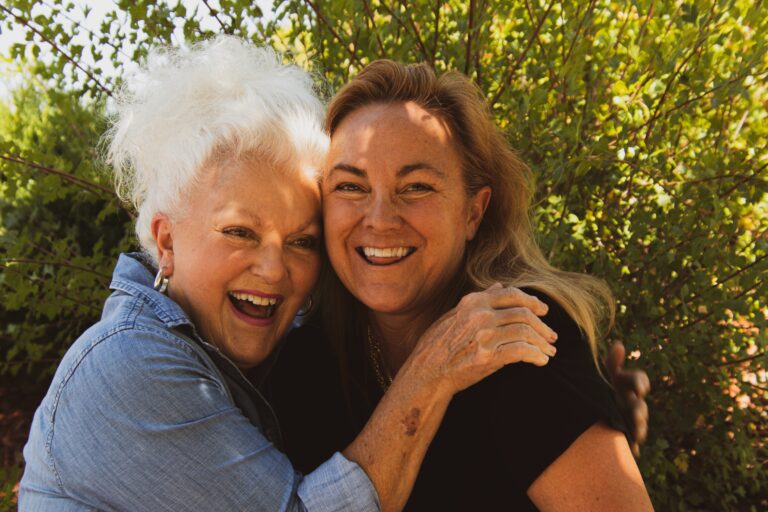I often encounter situations where seniors resist accepting help, even when it’s clear they need assistance with daily living tasks. It’s a delicate issue that touches on autonomy, trust, and the fear of losing their independence. If you’re dealing with a parent who’s refusing care, here are thoughtful strategies to help navigate this challenging terrain. Often our loved ones first reaction to any type of change is always one of resistance or negativity. However, once this new routine of having a caregiver around it can turn into a positive experience. It can feel really hard on us as family caregivers as we feel guilty enough for wanting/needing our own time & space. But we need to take care of us well in order to take care of them. You can’t fill a cup from an empty vessel, and sadly our seniors sometimes struggle to understand this.
Understand Their Perspective
It’s important to start by trying to understand why your parent may be resisting help. Often, this resistance stems from fear—fear of losing independence, fear of aging, or fear of becoming a burden. Sometimes, it’s about not acknowledging their own vulnerabilities or a deep-seated denial about their declining capabilities.
Take the time to have open, honest conversations where you listen more than you speak. Ask your parent about their concerns. Validate their feelings without immediately countering them. This can help in making them feel understood and respected, which might lower their defenses.
Introduce Help Gradually
If your parent is apprehensive about accepting full-time care, consider starting small. Introduce assistance in a gradual, non-threatening way. Perhaps begin with a housekeeper or a gardener, or arrange for a professional caregiver to come just a few hours a week for specific tasks like grocery shopping or transportation. This limited interaction can serve as a gentle introduction to receiving help without overwhelming your parent. You can stress the importance of this part time caregiver as something you need to reduce your stress and still be there for them.
Focus on Independence, Not Limitation
When discussing the need for care, frame it as a way to maintain independence rather than a sign of dependency. For instance, professional caregivers can enable seniors to live at home longer in order to age in place, safely and comfortably, which supports their desire to remain independent. Highlight how certain types of assistance can actually prolong their autonomy. It is frightening to see how many have the decisions made for them hastily after some kind of crisis like a fall and the choices are limited.
Choose the Right Caregiver
Finding the right caregiver can make a significant difference. It’s crucial that the caregiver meshes well with your parent’s personality and respects their wishes. Sometimes, resistance to care is simply due to a mismatch in personalities or approaches. Involve your parent in the selection process—let them meet and approve of the caregiver before making a final decision. Sadly, there are some agencies that look at open shifts to find bodies who will fill the shifts and you end up with a revolving door of caregivers. This is not an ideal situation for you or your family.
Use Medical Professionals as Leverage
Sometimes, a professional voice carries more weight. If a doctor, nurse, or social worker discusses the need for care with your parent, they might take the advice more seriously. Medical professionals can explain the risks of living without assistance in a way that is factual and impersonal, which might help your parent see the situation in a new light.
Leverage Technology
Incorporating technology can also help keep your parent safer and ease the transition. Use medical alert systems, home monitoring systems, and other assistive technologies to help your parent feel safe and secure while alone. These tools can provide them with the freedom to maintain their lifestyle while giving you peace of mind.
Attend Support Groups
Consider joining a support group with your parent. Meeting other seniors who are successfully navigating similar changes can provide your parent with a different perspective. It can also be reassuring to hear about others’ positive experiences with caregivers. You can also join groups like Parenting Aging Parents, where there are many people going through what you are going through.
Provide Choices
Always present care as a series of options rather than a single mandate. People are more likely to accept help if they feel they have had a hand in shaping the decision-making process. Whether it’s choosing between different caregivers, deciding on the days of the week for receiving help, or selecting specific tasks they want assistance with, having choices can make your parent feel empowered.
Set Clear, Respectful Boundaries
It’s important to be clear about what you can realistically provide in terms of support. Sometimes, telling your parent that you also have limitations can help them understand the need for additional help. Be honest about the physical and emotional toll caregiving might be taking on you.
Consult a Senior Care Expert
If you find yourself at an impasse, it might be helpful to consult a senior care expert or geriatric care manager. These professionals can assess your parent’s needs, suggest care options, and even help mediate difficult conversations. Their expertise in dealing with similar situations can provide valuable insights and solutions.
Navigating a parent’s refusal to accept help is challenging but not insurmountable. It requires patience, understanding, and a strategic approach. By gradually introducing help, respecting their wishes, and focusing on the benefits of assistance, you can help maintain their dignity and independence for as long as possible. Remember, you’re not alone in this. There are resources and support available to help both you and your parent through this transition.
📸 by Kampus Production

From a young age, Stacey’s link to the senior care industry grew alongside her mother’s work at a nursing home, where she often accompanied her. By her early teens, she secured her first official job at a nursing home, laying the foundation for a profound journey in senior care spanning over four decades. Her roles varied from opening assisted living and memory care residences to working in nursing homes and independent senior living communities. As the former Director of Fun for 300 independent seniors, she expertly organized daily events and trips. Stacey’s unwavering passion, nurtured by her family, and professional dedication as a recreation therapist, reflect her deep commitment to preserving the dignity and well-being of seniors.
Stacey’s senior care expertise has been recognized by the media including U.S. News and World Report and Care.com.
Stacey and her husband Bryan are the owners of the senior in-home care agency A Place At Home – North Austin.




